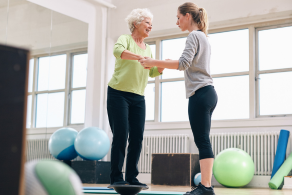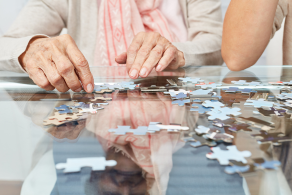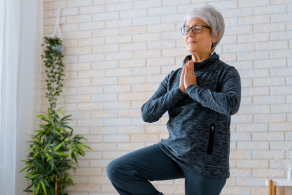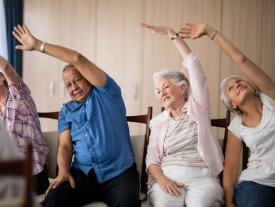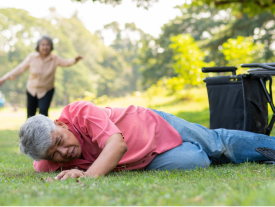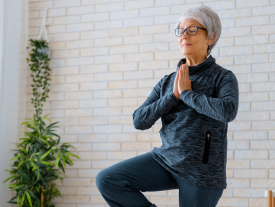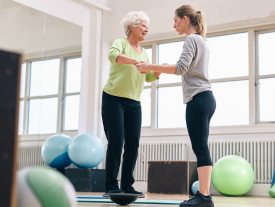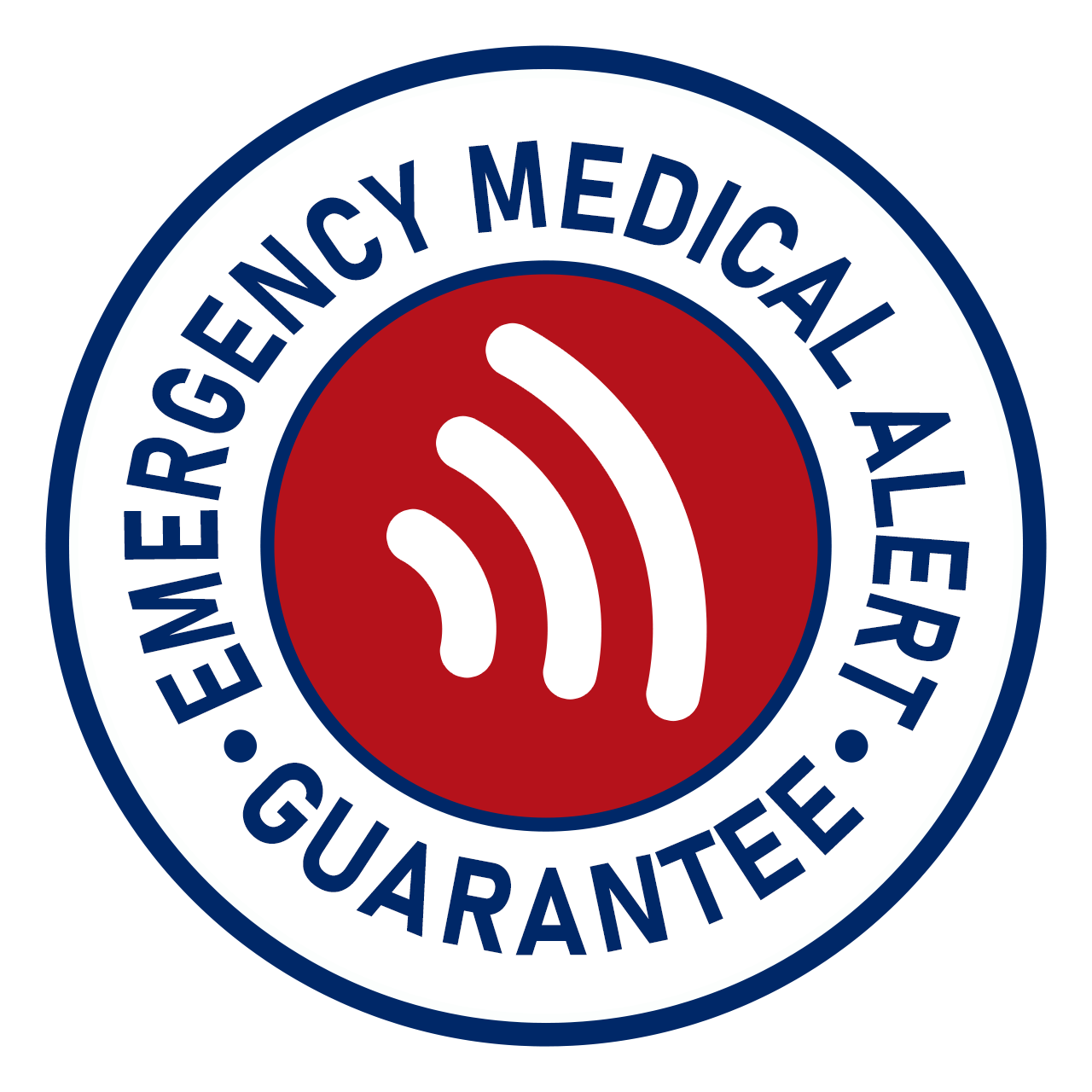Is Fall Detection For Seniors Worth It?
Being a senior means you have ample experience and know what is good for your body and what is not. As a part of this, it also involves making decisions to take good care of yourself and yet maintain autonomy.
For instance, seniors are quite prone to falls, but you want to make sure you get instant help and are not dependent on anyone. This is where fall detection for seniors comes in.
These are worthy devices that come in varying shapes and sizes and can offer you emergency help in case of an accident. With these systems, you will have a mental assurance that help will reach you no matter what.
Why Are Seniors Prone To Falls?
Now, you may ask why seniors face more accidents and risk of falls than others. While it can be summed up in one word, i.e., “age,” let us take a deeper dive into it:
Loss of Important Muscle Functions
As we age, it becomes quite evident that our muscle strength starts weakening. This is referred to as sarcopenia in medical terms. There is also loss in important limb nerves which can make things worse. Hence, our muscles become weak as a result of we become prone to falls.
Consequences of Illnesses and Conditions
There are certain conditions, like Parkinson’s, which can affect the nervous system of the body. Since it impacts both motor and non-motor systems, a person with the condition faces symptoms such as loss of balance or intense and frequent shakiness.
Now, since Parkinson’s develops mostly after the age of 60, seniors are the most prone to it. Other conditions like low blood pressure or general weakness can also make seniors prone to falls. As a result, they become prone to falls.
Loss of Memory Function
Our memory power also weakens with age and is nothing to be ashamed of. As a result, seniors may need clarification on leveled walkways and staircases.
If they choose to walk on staircases, they can be very easily prone to falls. They may also forget to carry essential objects like their canes and can trip over due to the lack of them and the steady support they provide.
Vision Impairment
Many seniors experience worsening vision as they progress with age. This can be very challenging as partial blindness may obstruct vision.
Again, some seniors report blurring vision, and they are not able to identify objects that stand as obstacles. This can be one of the major reasons why they are so prone to falls.
Effect of Medications
Similar to developing illnesses and conditions, we see that seniors have to take more medications than adults in their 30s or 40s do. Now, excessive medications can have some side effects on the body, and they can induce drowsiness.
Some people can also experience fainting if they feel excessively unwell. Hence, seniors become very prone to falls.
How Does Fall Detection System Prove to Be Worth it for Seniors?
Fall detection for seniors can literally act as life-saviors. A fall detection system works because it has smart sensors attached to it that can identify if a senior has fallen or faced an accident, minor or major.
Once it is identified, it triggers an alarm and sends the signal to the monitoring center. After the center receives the signal, they quickly dispatch help and reach the affected or wounded senior. This is how they prove to be worth your money.
It Gives the Right to Autonomy to Live Independently
With a fall detection system in hand, the seniors will have the independence to live on their own. This can be mentally reassuring and provide a sense of dignity to the senior.
Yet, they, along with their loved ones and family members, will have the assurance that they are not completely alone if something unfortunate happens. They will know that help will reach them under any circumstance.
Brings Help to You Quicker than Manual Intervention
With a fall detection alert, there would be no time-gap between triggering the alarm and dispatching medical service. This is essential, especially, if the senior has faced a high-risk accident and needs to be wheeled to a hospital urgently.
Whereas, without a fall detection system, someone has to find the senior and then place an emergency call manually. This can take a lot of time and even more time for medical services to be dispatched.
Reduces Anxiety for Both Seniors and Their Families
Living with anxiety and constant fear can greatly reduce the quality of life, and hence, enough mental stimulation and confidence is needed for a senior.
A fall detection system does exactly that, as it takes away your anxiety instantly by providing you with mental assurance that you aren’t alone.
Moreover, seniors will feel more confident while going out and can even go long distances and take walks in the park or community halls without the need to worry.
Even if they drift far, fall detection systems generally have GPS systems attached to them that can trigger alarms. So they won’t face the risk of getting lost.
Cost-Effective in the Long Run
Investing in a fall detection system can be cost-effective over time. Now, the initial setup and monthly monitoring fees might seem like an expense and can feel heavy on the pocket.
However, if you consider the cost of emergency hospital visits, long-term rehabilitation, and potential complications from untreated falls, the expenses will be far higher. Early detection and immediate intervention prevent minor falls from turning into major health issues.
That way, it reduces medical bills and the need for extended care. Moreover, it can delay or even eliminate the need for assisted living facilities.
This will allow seniors to stay in their own homes longer. This not only saves money but also maintains their comfort and familiarity with their surroundings.
Accuracy and Limitations of Fall Detection Systems
While fall detection systems are designed to save lives, it's important to understand that they are not perfect. The technology behind these systems relies on sensors such as accelerometers, gyroscopes, and motion detectors to identify when a fall has occurred. However, they may not detect every fall accurately.
False positives (where the system detects a fall that didn't occur) and false negatives (where the system fails to detect an actual fall) can happen. For example, if a senior moves in an unusual way or quickly sits down, the system may mistake this for a fall. On the other hand, more subtle falls, like a slow trip or stumble, may not be detected right away.
Environmental factors, such as the type of surface the senior falls on or the presence of obstructions, may also affect detection accuracy. It’s important to consider these limitations when deciding on fall detection for seniors. Regular testing and proper use can help reduce errors, and having a backup plan, like manual emergency alerts, can provide additional peace of mind.
Testing and Evaluation of Fall Detection Devices
To ensure that fall detection systems perform reliably, they undergo thorough testing and evaluation. Manufacturers conduct controlled lab tests to simulate different types of falls, such as backward, forward, and side falls. These tests are designed to assess the system’s ability to detect falls in various scenarios and environments.
In addition, independent organizations and health authorities conduct their own evaluations to verify the performance of these systems. These studies provide valuable insights into how well these devices work under real-world conditions and can help guide consumers toward reliable and effective systems.
Some fall detection systems are also subject to certifications and regulatory standards, which can help you make informed choices when selecting a device.
The Role of Algorithms in Improving Fall Detection Accuracy
One of the key advancements in fall detection systems is the use of sophisticated algorithms. These algorithms analyze the data gathered from sensors and help determine whether a fall has actually occurred. Over time, these algorithms improve as they process more data, which can reduce the frequency of false alarms.
Machine learning algorithms are becoming increasingly common in fall detection devices, allowing them to adapt to individual movement patterns. For example, a system might recognize that a senior frequently experiences dizziness, and it can be adjusted to better detect when such a condition leads to a fall. This personalized approach helps enhance detection accuracy and minimizes errors.
By continually refining the algorithms, manufacturers aim to improve the sensitivity and reliability of fall detection systems, making them more dependable over time.
Choosing a Medical Alert System with Fall Detection
When selecting a medical alert system that includes fall detection, there are several important factors to consider:
Contracts and Fees: Some services require long-term contracts, while others offer more flexible month-to-month plans. Be sure to review all costs, including setup fees, monthly monitoring charges, and any additional fees for fall detection services.
Brand Reputation: Choose a reputable brand with positive reviews and a solid track record of reliable service. Look for customer testimonials and third-party reviews to assess the system’s effectiveness.
Budget: Medical alert systems with fall detection can vary widely in price. Consider your budget and weigh the initial cost against the long-term benefits. While cheaper systems may be available, it’s important to invest in one that is reliable and has comprehensive features.
Monitoring Services: Evaluate the quality of the monitoring services, including response times, emergency dispatch capabilities, and customer service support. 24/7 monitoring with quick emergency response is essential in ensuring the senior’s safety.
In-Home Range: Some fall detection systems work best within a limited range of the base station. If the senior tends to move around the house or yard frequently, it’s essential to choose a system that offers an adequate range or one with GPS for outdoor use.
Conclusion
In short, yes, a fall detection system is worth all your money, and you should definitely consider investing in one if you are a senior or a loved one.
Being cost-effective in the long run and acting as a life-saver that can bring help quickly, fall detection for seniors is an efficient device that is a marvel of modern-day science.

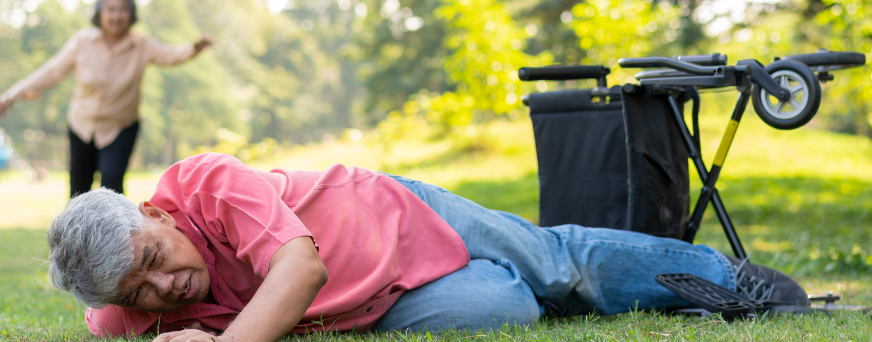
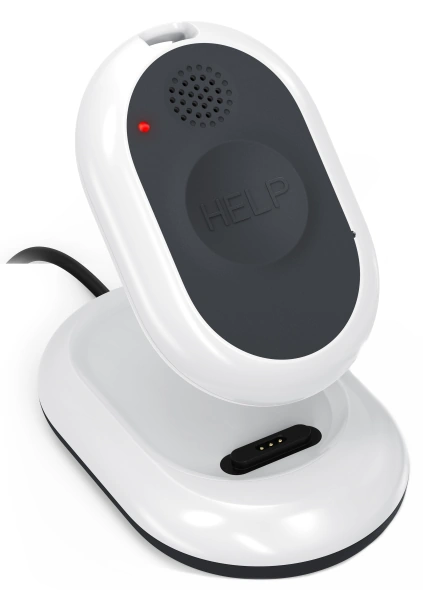
 Get Help With The Push Of A Button
Get Help With The Push Of A Button